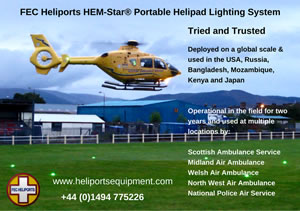ADi News2016-02-01 12:29:38
NASA chooses RFeye for the Kennedy Space Center
CRFS, a leader in RF spectrum monitoring solutions, has supplied NASA Kennedy Space Center with RFeye real-time signal monitoring, direction finding and geolocation systems.
The NASA Electromagnetic Lab (EML) provides ground and flight systems with radio frequency detection, electromagnetic interference troubleshooting, and electromagnetic interference triangulation. Their mission includes 24/7 monitoring of RF emissions across the site to ensure safety and to mitigate undesirable signals interference.
Improved situational awareness of the radio spectrum is key to developing, implementing and ensuring safe and effective spectrum operations in increasingly congested and complex operating environments. Facilities such as the Kennedy Space Center must be aware of, and deal with many potential electromagnetic interference (EMI) sources. These include commercial wireless communications from land, marine, aircraft, radar and other systems as well as weather related EMI events.
An RFeye Array 500 system installed at NASA Kennedy Space Center
EML's mission comes into especially sharp focus during spacecraft preparation and launch. They must ensure safe launch vehicle operations and protect sensitive mission payloads from any potentially harmful RF emissions. For this reason Kennedy Space Center installed a state-of-the-art RFeye real-time monitoring network from CRFS. The RFeye network consists of multiple Nodes and Arrays linked to remote systems running RFeye Site software to provide wide-area coverage and locate signals of interest.
RFeye Site geolocates multiple source co-channel interference
The RFeye systems can locate multiple targets including frequency hopping, broadband and low power co-channel interfering signals. This allows the EML team to use several different geolocation techniques including AOA, TDOA and POA to obtain directional bearings and plot heat map overlays for high probability, real-time geolocation of single or multiple simultaneous signal sources.
"The RFeye systems are an important component of our overall radio spectrum monitoring capability" said Peter Aragona, NASA RF System Engineer, EML Manager and Kennedy Space Center Electromagnetic Lead. "They provide an essential capability that enables our customers to deploy and operate their equipment with confidence."
"We are very pleased to provide RFeye solutions to NASA at such a high profile site as the Kennedy Space Center" said Alistair Massarella, CEO at CRFS. "Interference in the RF spectrum presents a serious and real threat to vital infrastructure. Our high performance radio monitoring systems and powerful data analytics software provide mission-critical information ensuring site and systems safety."
CRFS, a leader in RF spectrum monitoring solutions, has supplied NASA Kennedy Space Center with RFeye real-time signal monitoring, direction finding and geolocation systems.
The NASA Electromagnetic Lab (EML) provides ground and flight systems with radio frequency detection, electromagnetic interference troubleshooting, and electromagnetic interference triangulation. Their mission includes 24/7 monitoring of RF emissions across the site to ensure safety and to mitigate undesirable signals interference.
Improved situational awareness of the radio spectrum is key to developing, implementing and ensuring safe and effective spectrum operations in increasingly congested and complex operating environments. Facilities such as the Kennedy Space Center must be aware of, and deal with many potential electromagnetic interference (EMI) sources. These include commercial wireless communications from land, marine, aircraft, radar and other systems as well as weather related EMI events.
An RFeye Array 500 system installed at NASA Kennedy Space Center
EML's mission comes into especially sharp focus during spacecraft preparation and launch. They must ensure safe launch vehicle operations and protect sensitive mission payloads from any potentially harmful RF emissions. For this reason Kennedy Space Center installed a state-of-the-art RFeye real-time monitoring network from CRFS. The RFeye network consists of multiple Nodes and Arrays linked to remote systems running RFeye Site software to provide wide-area coverage and locate signals of interest.
RFeye Site geolocates multiple source co-channel interference
The RFeye systems can locate multiple targets including frequency hopping, broadband and low power co-channel interfering signals. This allows the EML team to use several different geolocation techniques including AOA, TDOA and POA to obtain directional bearings and plot heat map overlays for high probability, real-time geolocation of single or multiple simultaneous signal sources.
"The RFeye systems are an important component of our overall radio spectrum monitoring capability" said Peter Aragona, NASA RF System Engineer, EML Manager and Kennedy Space Center Electromagnetic Lead. "They provide an essential capability that enables our customers to deploy and operate their equipment with confidence."
"We are very pleased to provide RFeye solutions to NASA at such a high profile site as the Kennedy Space Center" said Alistair Massarella, CEO at CRFS. "Interference in the RF spectrum presents a serious and real threat to vital infrastructure. Our high performance radio monitoring systems and powerful data analytics software provide mission-critical information ensuring site and systems safety."
For more information contact:
